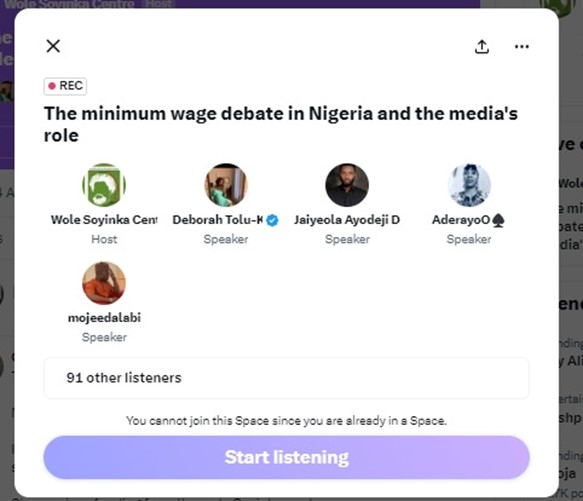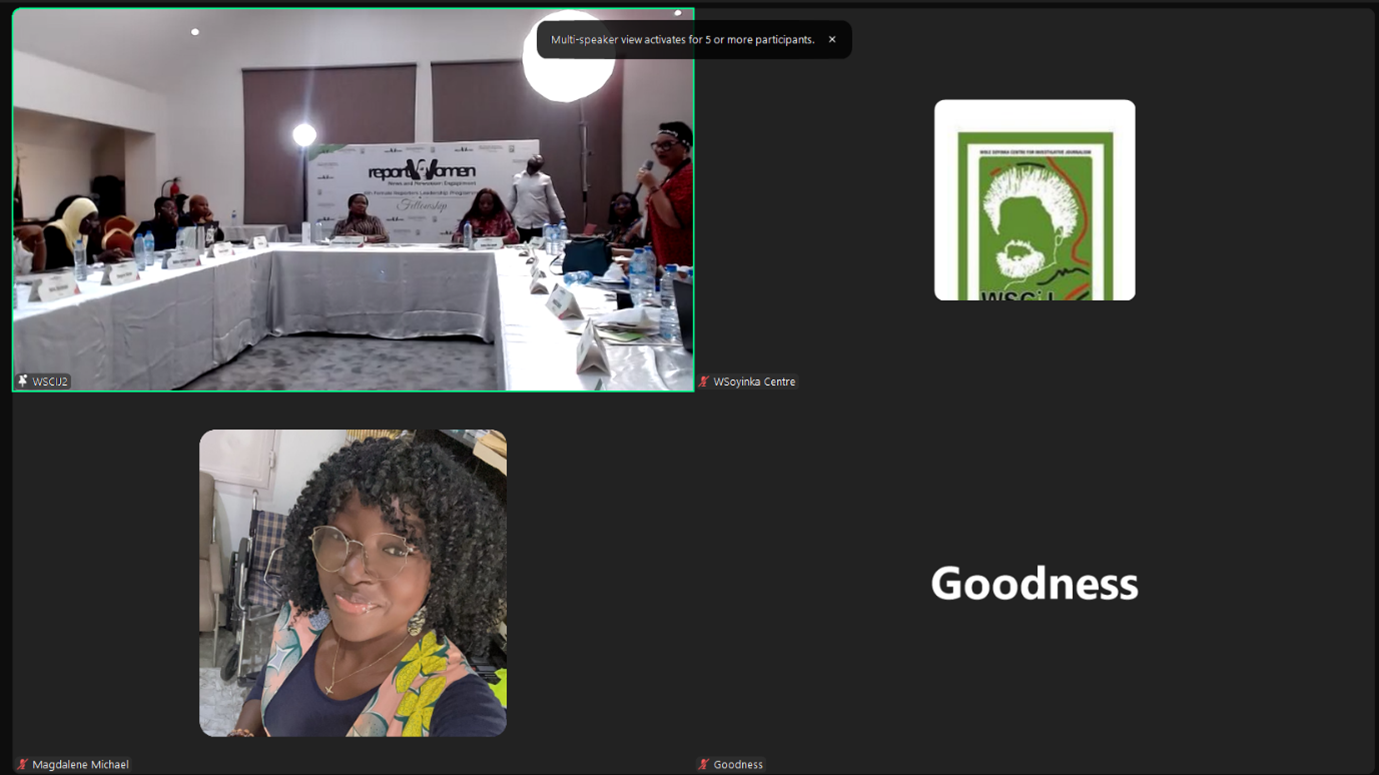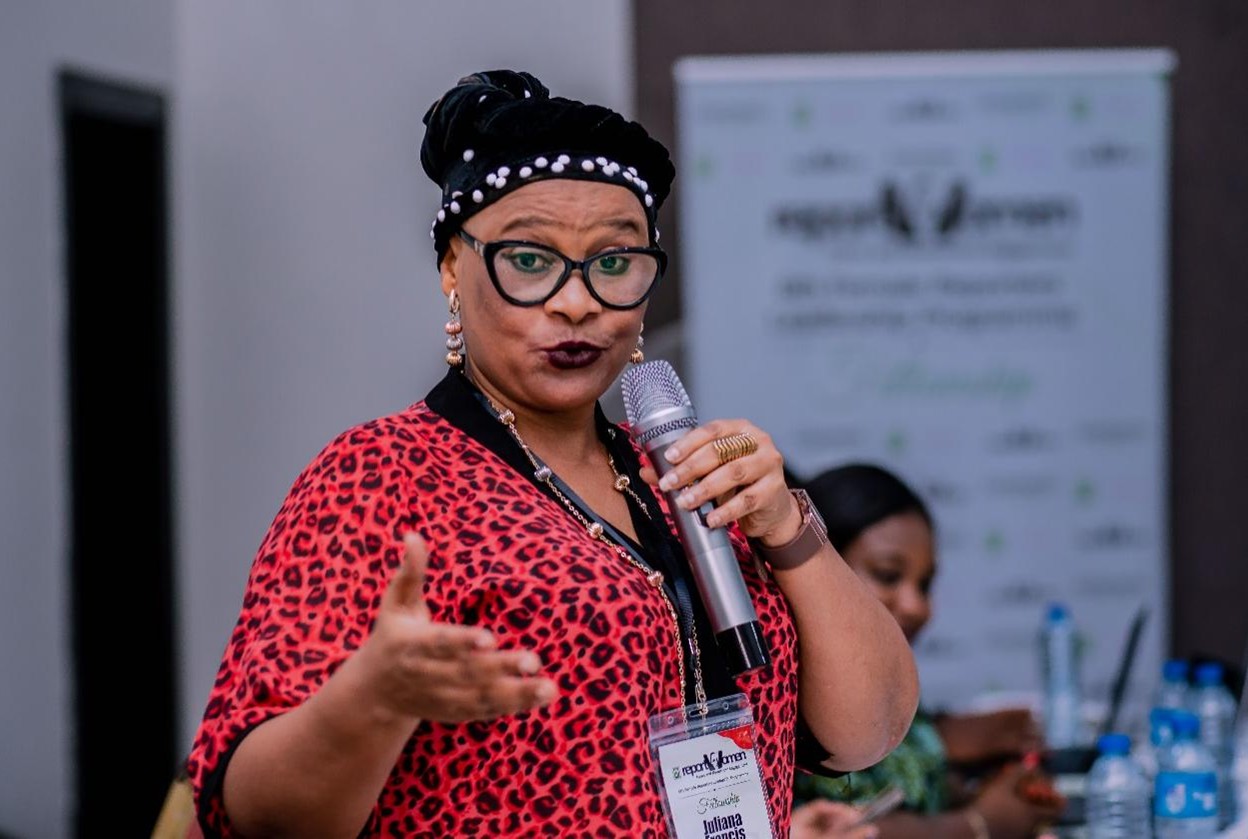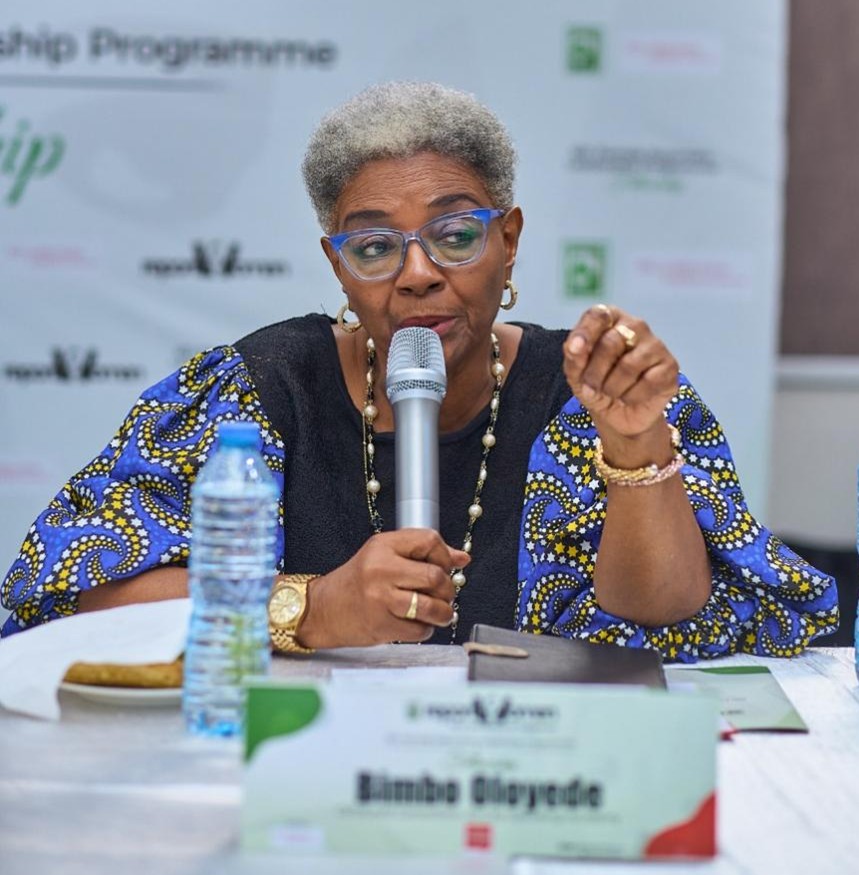Panellists at the Journalism & Society Conversations by the Wole Soyinka Centre for Investigative Journalism (WSCIJ) on Tuesday, 9 July 2024 discussed the historical contexts, the pivotal role of media, constitutional considerations, and socio-economic impacts amidst the ongoing minimum wage negotiations in Nigeria. They addressed prevalent misconceptions and emphasised the need for regulatory oversight to curb inflationary pressures stemming wage adjustments.
The conversation themed “The minimum wage debate in Nigeria and the media’s role” featured Mojeed Alabi, Head, Development Desk, Premium Times; Deborah Tolu-Kolawole, Member, Punch Newspaper Editorial Board; and David Ayodeji, Co-Founder and Chief Operating Officer, FastaMoni Technologies. Aderayo Dada, Head of Station, Roots TV, moderated.
Setting the stage for the conversation, Samson Ademola, Programme Officer, WSCIJ, noted that minimum wage sparks debate about workers’ welfare, economic growth, national prosperity and overall prosperity of the nation. He added that the theme is important in that the minimum wage reflects the standard of living of the citizens of a nation, the state of social justice, and human dignity in the country.
Alabi clarified that the minimum wage is a constitutional issue on the exclusive list of the federal government. Alabi opined that the media should interrogate whether minimum wage should be exclusive to the federal government, the varying costs of living across states, state government revenues and the impact of minimum wage on the private sector, among other critical issues. Addressing misconceptions about the inflationary effects of wage increment, Alabi highlighted that, according to a report published by the National Bureau of Statistics in February 2024, 87% of Nigerians are self-employed. Hence, minimum wage-driven inflation is not a wage increment indicator but a reflection of the informal sector’s attempt to benefit from the new wage structure.
Alabi also faulted the poor wage system in Nigeria for the brain drain in the country. As the media does not exist in a vacuum, Alabi emphasised that the press faces challenges in recruiting skilled professionals due to the economic situation in the country, and because of media democratisation, trained journalists who traditionally lead discussions are now reactive, leading to a lack of in-depth conversations and investigative reporting. He urged the media to employ diverse methods to gather news, particularly when the government hoards information.
Another panellist, Tolu-Kolawole, expressed concern over the ongoing deadlock between labour and the federal government, describing it as a troubling precedent as the government failed to uphold its commitments. She explained that constitutionally, the negotiation for a new wage structure should have commenced, given that the current wage structure expired on 18 May 2024. Top of FormBottom of FormShe noted that because of the mistrust between the people and the government, the media are often tagged as sellouts when they report the government’s activities. She recommended that the Nigerian media should understand the information at their disposal before sharing it.
On his part, Ayodeji affirmed that the wage review is just a step in fixing Nigeria’s inflation. He appealed for a compromise amid the call for a wage commensurate with the inflation rate in Nigeria. He described the current wage dispute as a vicious cycle for business owners who are caught between avoiding the stigma of being labelled exploitative and staying afloat.
The Journalism & Society Conversations by WSCIJ brings stakeholders together to discuss the pressing issues of press freedom, regulatory frameworks, and the pivotal role of investigative journalism in holding the government accountable and contributing to nation-building.
Signed
WSCIJ Team








